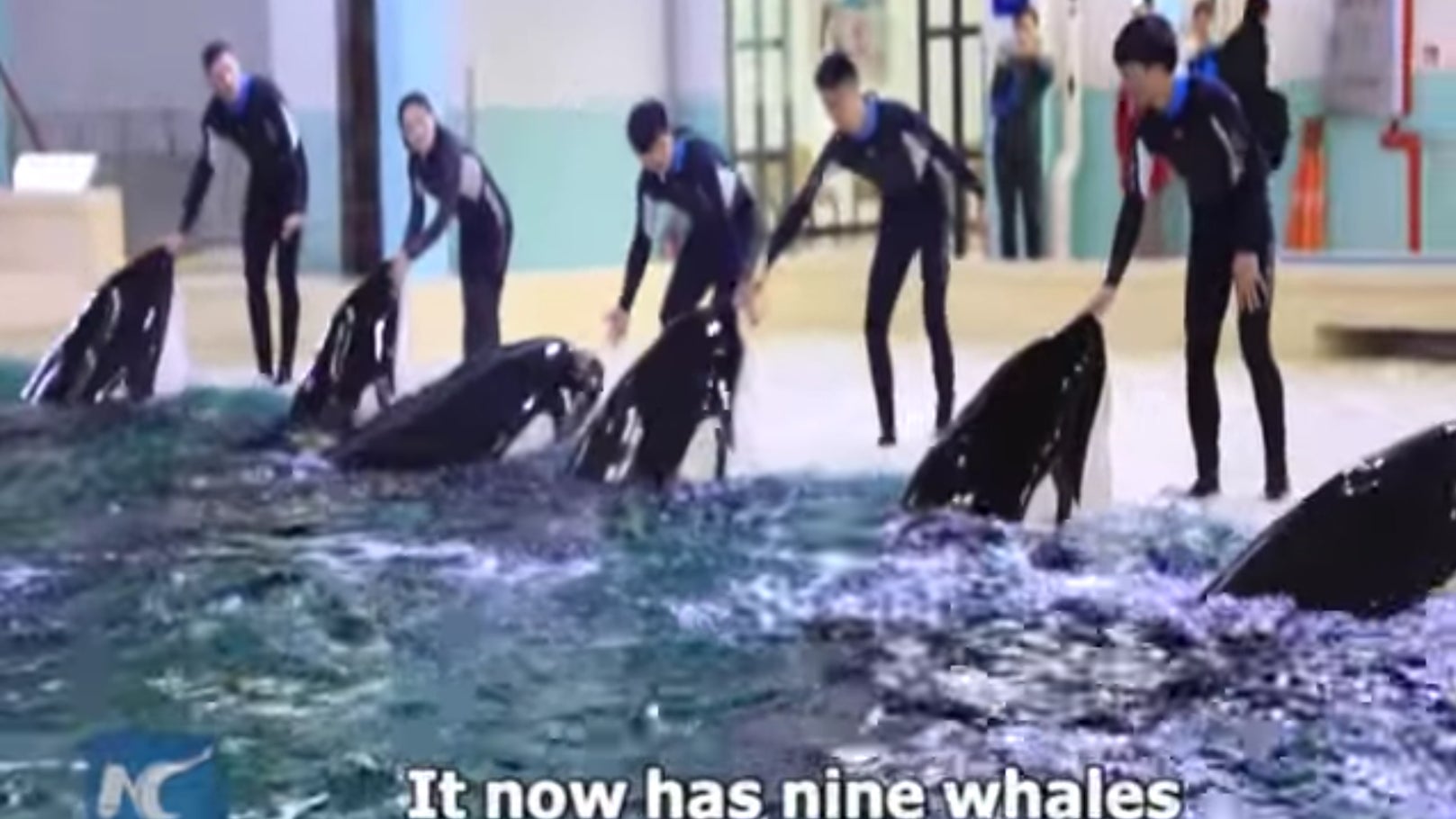As countries move to ban orca captivity, China opens its first killer-whale breeding center
China is planning to breed more killer whales to feed the nation’s growing demand for zoos and theme parks.


China is planning to breed more killer whales to feed the nation’s growing demand for zoos and theme parks.
Chimelong Group, one of the country’s biggest amusement park operators, opened the first ever breeding center for killer whales on Feb. 24 in the Chimelong Ocean Kingdom park in the southeastern city of Zhuhai, according to state media outlet Xinhua.
A total of nine whales, including five males and four females aged between five to 13, are kept in the breeding facility, according to the park’s announcement (link in Chinese). The breeding center aims to “help cultivate the public’s awareness of whale protection, develop related studies, and progress toward killer-whale breeding.” The park didn’t specify the size of the breeding facility or if the whales would be used for any performances.
Conservation groups are concerned about the practice of breeding whales, however. “Killer whales in captivity generally have a shorter lifespan than wild killer whales,” said the Hong Kong Dolphin Conservation Society in an email, adding that Chimelong’s practice might encourage the “the surging aquarium industry in China.”
China’s foray in whale breeding comes as theme parks around the world are shutting down similar facilities. More than a dozen countries including Switzerland, India, and Chile, as well as some states in the US, have banned orca captivity. SeaWorld, one of America’s biggest theme parks, also vowed to stop its orca breeding practice in 2016 following backlash from the release of the documentary Blackfish.
But as domestic tourism and demand for leisure activities boom, China is doing quite the opposite. An aquarium in Changsha recently bred a beluga whale in captivity, and a polar bear kept in a mall in Guangzhou made global headlines last year after it was dubbed the “world’s saddest polar bear” because of its poor conditions in captivity. All around the country, giant animals are being put in not only theme parks, but also malls and restaurants as tourist attractions.
“The practice of breeding is bad for killer whales, just take a look at the documentary Blackfish,” said one commenter under Xinhua’s post (link in Chinese) on China’s social media network Weibo.
Chimelong didn’t respond to a request for comment.